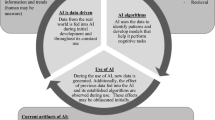Abstract
Audit committees are widely accepted as a cornerstone of good corporate governance practice. In some countries, legislation requires public companies to establish them: in others, they are central to voluntary codes. Their history can be traced back to the 19th century, although their current form dates back to the 1930s. Their use as an internal governance mechanism has been extensively promoted in the wake of financial scandals in the USA and the UK in the 1980s. Since then, audit committees have increased in importance. Guides to audit committee ‘best practice’ have proliferated but little is known about how they set about their work in practice and there is very limited evidence to demonstrate that they are effective in improving the quality of financial reporting and corporate governance. This paper explores possible explanations for the enduring faith placed in these groups of non-executive directors by offering three metaphorical perspectives from which their past history might be considered, together with a brief outline of the current challenges they face.
Similar content being viewed by others
Author information
Authors and Affiliations
Corresponding author
Rights and permissions
About this article
Cite this article
Spira, L. Black boxes, red herrings and white powder: UK audit committees in the 21st century. J Bank Regul 7, 180–188 (2006). https://doi.org/10.1057/palgrave.jbr.2340012
Published:
Issue Date:
DOI: https://doi.org/10.1057/palgrave.jbr.2340012




